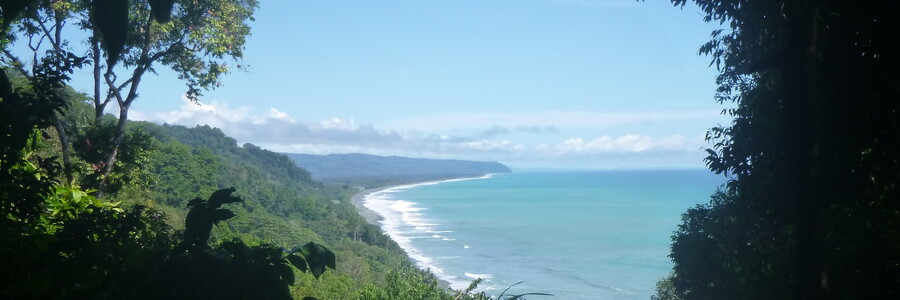In a first major step, Katja Wiese, CEO of the organization, wants to plant 100,000 trees in Costa Rica over the next few years together with her partners, Beuth University of Applied Sciences Berlin and the local Fundación de Universidad de Golfito.
"The green climate bridge is effective species and climate protection at the same time," she emphasizes. Through the project, remaining remnants of rainforest are protected and new trees are planted. As CO2 reservoirs, the preserved forests as well as the reforested areas are central keys to climate protection. At the same time, the planned corridor will decisively promote the exchange of species between Corcovado National Park, located on the Pacific coast, and La Amistad National Park in the highlands.
This involves bridging a distance of 80 kilometers. There are still many forest remnants here, some connected to each other, some not far apart, with pastures left open in between that need to be reforested. Sustainably managed land can also contribute to the planned bridge.
"We will buy land, lease it and help farmers practice sustainable agriculture. Every parcel of land that we can gain in this way will contribute in a kind of mosaic to the creation of the green climate bridge piece by piece," Katja Wiese outlines the long-term plan. "We will start with 600 hectares of land, which are currently for sale, and 100,000 tree plantations," she explains further.
Costa Rica is rich in national parks and has placed about a quarter of its land area under nature conservation. Nevertheless, nature is threatened by settlement pressure, grazing and plantation farming, and especially by poaching and logging. The two national parks to be linked are Corcovado National Park, located in southern Costa Rica, which protects one of the world's last lowland rainforests on more than 40,000 hectares. Rare species such as jaguar, tapir and harpy eagle live here. In the central highlands lies the second, the National Park "of Friendship" La Amistad, which stretches from Costa Rica across the border to Panama. This protected area contains the Talamanca Mountains, cloud forests and tropical rainforests with an incredible variety of animal and plant species. La Amistad is the largest national park in Costa Rica and has been a World Heritage Site since 1983.
In addition to direct donations, compensation from the Blue Planet Certificate also flows into the project. With this climate certificate, Naturefund offers companies, organizations and private individuals the opportunity to offset their CO2 emissions caused by travel or events by planting trees: a transparent and effective means of climate protection.

